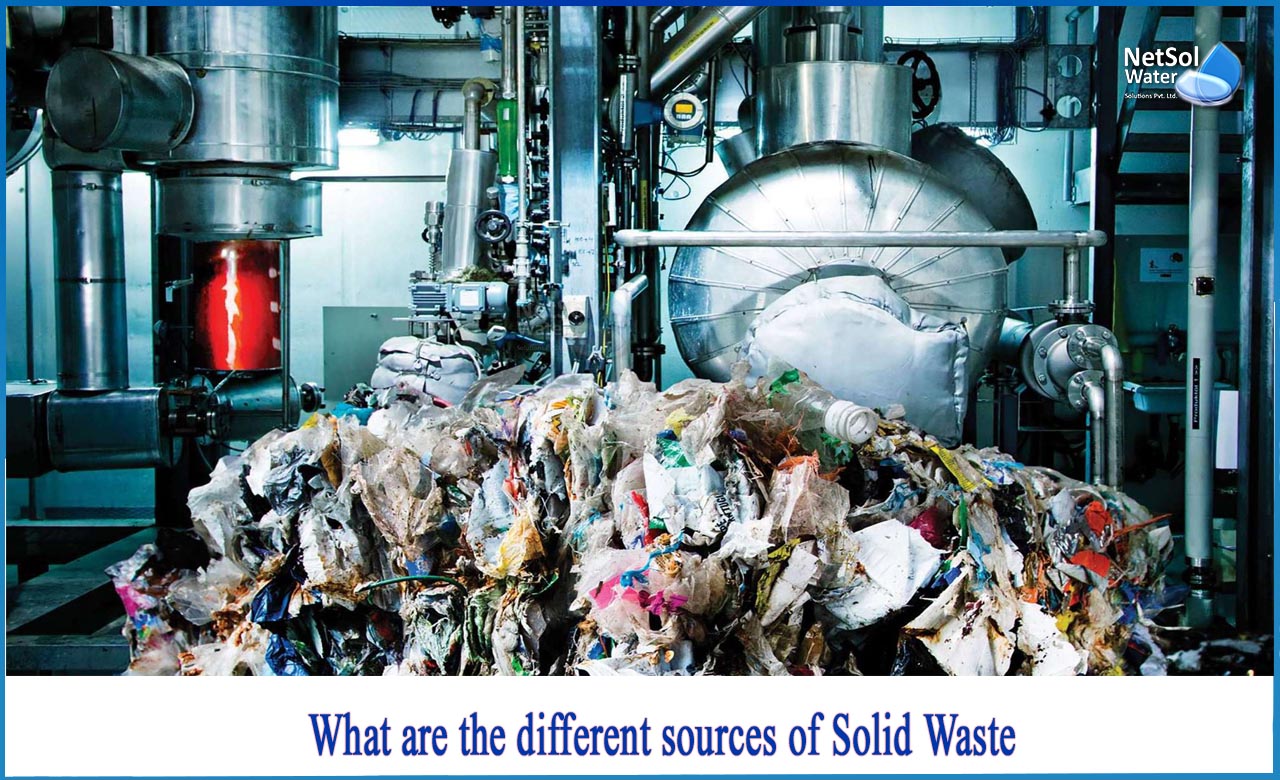What are the different sources of Solid Waste?
The process of collecting and processing solid waste is referred to as solid waste management. It also provides recycling options for goods that do not belong in rubbish or trash. Solid waste has been an issue since a long period of time, as long as people have lived in communities. Waste management is concerned with the transformation of solid waste into a profitable resource.
Every family, including company owners, should adopt solid waste management across the world. Industrialization has provided many benefits as well as drawbacks. One of the negative consequences of industrialisation is the generation of solid waste.
Various Solid Waste Sources
Tonnes of solid waste are disposed of at numerous dump sites every day. This waste is generated by houses, workplaces, factories and a variety of agricultural operations.
If solid waste is not adequately kept and managed, these dump sites emit a bad odour. It can contaminate the surrounding air and have major consequences for human, wildlife and environmental health.
The following are the significant sources of solid waste:
1. Habitation
People's homes and apartments are among the major generators of solid waste. Food wastes, plastics, paper, glass, leather, cardboard, metals, yard wastes, ashes and special wastes such as electronics, tires, batteries, old mattresses and used oil are all examples of waste from these sites.Most households have garbage bins where people may dispose of their solid waste and the container is eventually emptied by a garbage collection company or individual for treatment.
2. Institutional
Institutional facilities such as schools, universities, jails, military barracks and other government facilities generate solid waste as well. Glass, rubber waste, plastics, food wastes, wood, paper, metals, electronics and different hazardous wastes are some of the common solid wastes produced from these locations.
3. Municipal Government Services
In most nations today, metropolitan areas also contribute significantly to the solid waste issue. Street cleaning, garbage from parks and beaches, wastewater treatment facilities, landscaping wastes and waste from recreational areas, including sludge are examples of solid waste generated by municipal services.
4. Treatment Plants and Locations
Solid waste is generated by both heavy and light manufacturing units. Refineries, power plants, processing facilities, mineral extraction plants, and chemical plants are among them.Industrial process wastes, undesirable specified goods, polymers, and metal pieces are only a few of the waste generated by these operations.
5. Agriculture
Crop farms, orchards, dairies, vineyards and feedlots all create solid waste. Among the wastes they create are agricultural waste, decaying food, pesticide containers and other harmful goods.
6. Commercial
Today, commercial facilities and structures are another source of solid waste. Hotels, marketplaces, restaurants, godowns, stores, and office buildings are examples of commercial structures and facilities.
Plastics, food wastes, metals, paper, glass, wood, cardboard materials, special wastes and other hazardous wastes are among the solid wastes created by these locations.
7. Industrial
One of the largest producers to solid waste is the industrial sector. Light and heavy manufacturing businesses, building sites, fabrication factories, canning plants, electricity and chemical plants are among them.
These industries generate solid waste, which includes housekeeping wastes, food wastes, packaging wastes, ashes, building and demolition materials, special wastes, medical wastes, and other hazardous wastes.
8. Areas of Construction and Demolition
Construction and demolition sites also add to the problem of solid waste. Construction sites include new building and road construction sites, road repair sites, building refurbishment sites and building demolition sites.
Steel, concrete, wood, plastics, rubber, copper wires, dirt, and glass are among the solid wastes generated in these locations.
9. Biomedical
This category includes hospitals, biomedical equipment’s, and chemical manufacturing companies. Different sorts of solid waste are generated in hospitals.
Syringes, bandages, worn gloves, medications, paper, plastics, food wastes and chemicals are among the solid wastes. All of them must be disposed of properly or they will cause a major problem for the environment and the individuals who use these facilities.
What do we have to offer?
We are pleased to introduce ourselves as leading water, wastewater treatment company in India, specializing in the manufacture of WTP, WWTP, ETP, as well as Solid waste management. Netsol Water is a one-stop utility partner for both industrial and commercial clients, helping them improve resource productivity and bottom lines while safeguarding the environment.
Please contact us at +91-9650608473 or drop a mail at enquiry@netsolwater.com for further information or to make a purchase.



